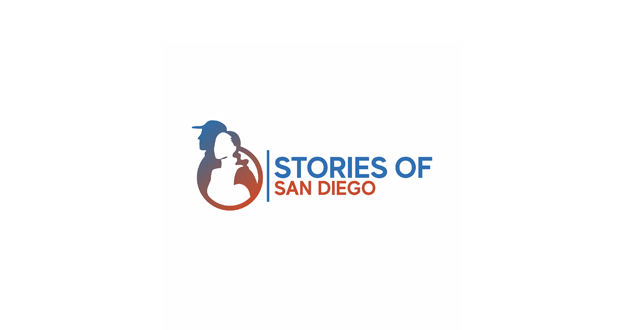Submissions now accepted from the community via text and email
San Diego CA— During the pandemic, many people took up new hobbies like hiking, bread making, and gardening. Others became expert puzzle solvers or welcomed cats, dogs, and other furry friends into their homes. But one San Diego County resident took to the keyboard to create a community project that fosters connections that will last more than a lifetime.
Lindsay Hood, an award-winning local news producer, has created Stories of San Diego, an online community journalism project to document the history of the COVID-19 pandemic in our region among people of color and groups in the local community who have been adversely affected by this devastating virus. COVID-19 has put a spotlight on racial disparities and social injustices that plague the United States. Black, Latinx, Asians and other people of color (POC) have been disproportionately affected by the disease. They are the frontline workers who work every day for non-livable wages, little or no sick pay and minimal access to healthcare.
“Stories come in all shapes and sizes,” says Hood. “The power of telling our own narrative allows us to remember who we are and where we came from. ‘Stories of San Diego’ is a project to collect first-person narratives from individuals that belong to the broad array of racial and ethnic minority groups in San Diego to hear how they have been affected by COVID-19.”
Historically, stories have been used as a way to create social change, build relationships, unite people and mobilize groups to create change. People are invited to share stories about their home life, their struggles with finding employment, disrupted plans, discrimination, insights from working in essential jobs, healthcare and housing struggles. By sharing these struggles, the hope is to challenge assumptions, disrupt prevailing cultural narratives, and change the stories that shape popular culture.
“Traditional media doesn’t have the resources to cover everything, so a community journalism project is a great way to make sure everyone’s voices are heard, and that no one group is left out or forgotten in the history books,” says Hood, who has been a professional journalist since 2004. Hood will collect stories from the public through February 2022. Ultimately, the stories will be housed at the San Diego State University Library in their digital collection.
The public can submit their stories in a variety of ways – you don’t need a computer or internet access to participate. “Writing is a great way to express feelings and share,” she says. “It’s a great way to understand other people and to connect with people living near you.” Hood says submissions can be made in your preferred language, and currently they are able to edit in Spanish, Tagalog, Illicano, Korean, and English. People can text their story and a photo to 619-777-5776, email their story to stories@storiesofsandiego.com or visit www.storiesofsandiego.com to learn more. Hood is also asking for volunteers to help curate and edit stories in their communities.
The culminating piece of the Stories of San Diego Project is a book that will bring together the work of journalists from San Diego and beyond to explore and record this historic time as it unfolds. Stories will focus on various topics that have affected people of color in San Diego over the past year, including social justice, vaccine distribution, COVID-19 testing and more. Currently, committed contributors are comprised of veteran journalists, including Paul Krueger, JW August, and Lynn Walsh. The book is scheduled to be published at the end of 2021.
As a Black journalist and native San Diegan, this project is a way for Hood to give back to her community by bringing world-class journalists and local residents to the table to tell stories fully, not abridged for the sake of time or length. “I just really hope Stories of San Diego brings our community together,” says Hood. “I also hope it gives people a way to really see what is happening in our communities with individual people and families. This is a good way for people to learn about what others are going through.”
Initial submissions from community members have been posted on the site. To learn more, visit www.storiesofsandiego.com.




